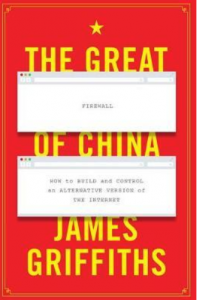
Online censorship of the web


China’s Great Firewall once a glorified porn filter has evolved into the most sophisticated system of online censorship in the world
In China you can erase and delete all your Twitter posts after publishing a data analysis of government officials, plagiarised academic work. Over the past year, Beijing’s censors have for the first time tried to scrub Twitter of posts that they find not to their liking and hacking into dissident’s accounts and forcing some to delete their own content even after the fact that Twitter is already blocked in China.
China has been attacking on freedom of speech online for over two decades. For most non-Chinese contact with Beijing censorship controls, due to lack of access to Google and Facebook is a frustrating experience.
Hong Kong-based journalist James Griffiths write in The Great Firewall of China, “Chinese state-sponsored hackers have temporarily brought down GitHub, extensively phished Tibetans in India and according to US indictments allegedly stolen business secrets from American companies. China has its vision of cyber sovereignty and a walled internet internationally and helped Russia as well as Uganda to build its internet controls. China’s system of internet censorship is not for internal consumption only but is also being exported as a part of a campaign by Beijing to legitimise its approach to the world although China initially learnt form the best to build its firewall from US tech companies, such as CISCO that developed basic internet traffic filtering tools that gave corporations control over employees’ browsing. But Beijing took these tool to a new level and scale and today operates world’s most sophisticated censorship and surveillance system. To stop people from connecting to websites or services the Communist party does not like , the Great Firewall blocks website names, misdirects traffic and can even shut off encrypted communications by figuring out to what kind of service the user is trying to connect.
Beijing explains China’s expanding technological capabilities and its ability to conduct cyber espionage. Griffiths explains a technical subject – Beijing’s internet controls through the lens of Chinese politics. Several activists have become victims of China’s censors among them Falun Gong Mystics, satirical cartoonist and Uighur Muslims.
Regulators however, tolerate complaints over air pollution and disgraced politicians, but last year closed down a video-sharing platform that was entirely populated with Lewd jokes called Neihan Duanzi ( Implicit Stories).
The Great Firewall of China: How to Build and Control an Alternative Version of the Internet by James Griffiths, Zed Books, £20, 385 pages.
